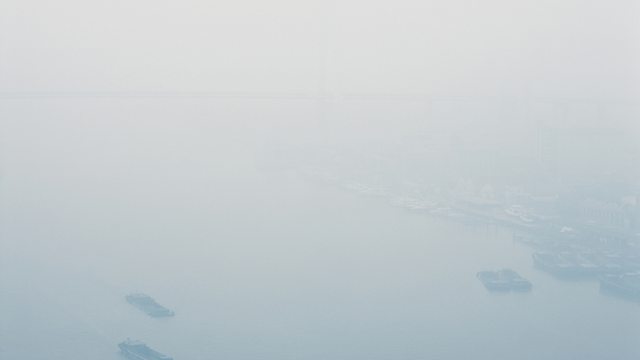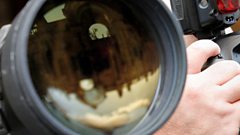Capturing Light
Harnessing light using ultra-fast cameras and solar panels. With physicist Genevieve Gariepy, photographer Benedikt Partenheimer and solar energy professor Ken Durose.
Quentin Cooper is joined by three people who, each in their own way, has set out to capture light in order to exploit and explore some of its remarkable properties. Genevieve Gariepy is taking snapshots of photons, light particles which move at 300 thousand kilometres per second, photographer Benedikt Partenheimer records images that highlight the effects of dense air pollution on light, and professor Ken Durose is attempting to help us get much better at extracting electricity from sunlight.
(Photo Credit: B. Partenheimer – Particulate Matter)
Last on
Clip
-
![]()
Camera that sees around a corner
Duration: 00:55
Chapters
-
Genevieve Gariepy
Capturing photons travelling through air
Duration: 11:33
Benedikt Partenheimer
Shining a light on air pollution
Duration: 07:59
60 Second Idea
An Illuminating Mega Party
Duration: 07:12
Ken Durose
Challenging the limitations of solar power
Duration: 11:03
Ken Durose
![Ken Durose]()
Professor Ken Durose from Liverpool University’s Stephenson Institute for Renewable Energy, a leading researcher into solar energy, explains how scientists and engineers are now able to get round the theoretical upper limit on the amount of sunlight which photovoltaic cells can convert into electricity.
Genevieve Gariepy
![Genevieve Gariepy]()
Edinburgh Heriot-Watt University’s PhD. researcher Genevieve Gariepy and colleagues have recorded the first-ever movie of light particles moving directly in air, using a laser and an array of detectors that log the time a photon arrives at them with incredible precision, equivalent to snapping around 15 billion frames a second.
Benedikt Partenheimer
![Benedikt Partenheimer]()
In ‘Particulate Matter, his recent photographs and videos from Chinese cities, German photographer Benedikt Partenheimer has managed to capture ‘light without shadows’, a ‘different kind white’. The white haze which often blankets large Chinese cities is a complex mix of extremely small particles and liquid droplets, giving Benedikt’s photographs an other-worldly atmosphere.
Sixty Second Idea to Change the World
![Sixty Second Idea to Change the World]()
Genevieve Gariepy wants us to appreciate some really big numbers, such as that there are 7 billion people on this planet. 7 billion is hard to imagine so she suggests we all meet in a space where we can all fit, perhaps a big, flat desert. We would then take a satellite picture of us all, and seeing the resulting image would help us understand how much space we actually take up when we are together, how many people we really share the planet with.
Broadcasts
- Mon 23 Mar 2015 03:05GMT91�ȱ� World Service Online
- Tue 24 Mar 2015 09:05GMT91�ȱ� World Service Online
Do you think political or business leaders need to be charismatic? Or do you prefer highly competent but somewhat stern people?
Podcast
-
![]()
The Forum
The programme that explains the present by exploring the past








